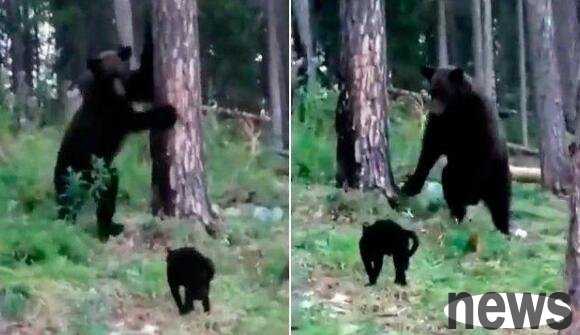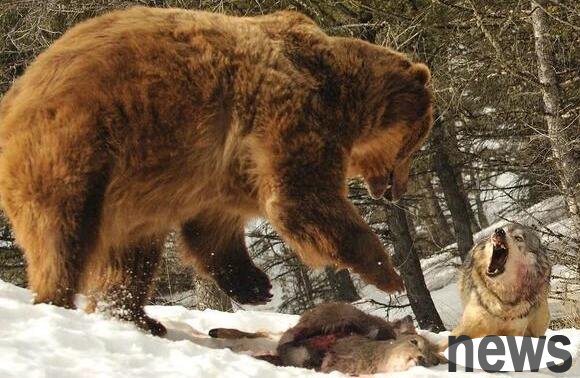The big brown bear was driven away by the black cat, why is the bear so "bear"? Can bears really kill tigers and wolves?
On August 4, 2021, in the forest of Yakut, Russia, the owner encountered a brown bear while taking a black cat out for a wild trip. The black cat immediately switched to a fighting posture, arched its back, exploded its hair, and glared at the bear. This powerful aura shocked the bear, and the bear was finally forced to retreat.

This is not a rare thing, and it is a daily routine for bears to be driven away by cats and dogs. There have also been many times in North America where bears enter villages or people's homes and are driven away by pet cats and dogs. Most of these bears are black American bears, while some are brown bears. In April 21, in California, USA, an American black bear that broke into the room was expelled by two puppies. In July 19, in New Jersey, a black bear entered the yard to find a stutter, but was driven away by a dog. In 15 years, near Anchorage, Alaska, a black bear was swooped through the glass by a pet cat, fleeing in panic. There are many things that the bears were chased away by cats when they entered the courtyard. The most popular bear occurred in New Jersey in 2006. The black bear was actually caught by cats on a tree twice.
Regularly speaking, a bear can kill pet cats and dogs with just one claw. Why is it so "bear"? Can such a "bear" animal really compete with beasts such as wolves and tigers in the wild?
When it should be evil, when it should be "bear", when it should be "bear",
To be precise, the bear is evil, when it should be "bear", when it should be "bear". Whether it is a fierce or a "bear" depends on whether it is related to survival resources, and the most important thing is food.
Zoologists' research shows that bears act very tough in food-related conflicts, and are very cowardly in encounters without food.
Bears like to steal prey from other carnivores, including wolves, mountain lions, lynxes and even tigers. Even as many as 20 wolves or even adult tigers, when they encounter the perseverance of the big brown bear, they have to give up their prey.

But on the contrary, if the bear only encounters these food animals by chance, it will not need to fight to the death and it will easily retreat. In North America, when a bear encounters a pack of wolves near a wolf's den, it almost 100% gives in.
Except for polar bears and brown bears in a very small number of areas, most bears are mainly vegetarian, rarely eat meat, and rarely hunt. Therefore, they regard other carnivores as meal tickets and do not regard them as potential competitors or prey. As long as they hand over the food, the bears are not very interested in killing them.
Moreover, the bear's body is relatively clumsy. Although it is extremely powerful, it is difficult to catch a small and agile opponent and lacks the ability to kill quickly, so the latter dares to get close to the bear and go forward to harass the bear. If bears get entangled with them, they will probably waste their energy in vain and will not be worth the loss. It is better to take the initiative to retreat, as this is more in line with its survival interests.














